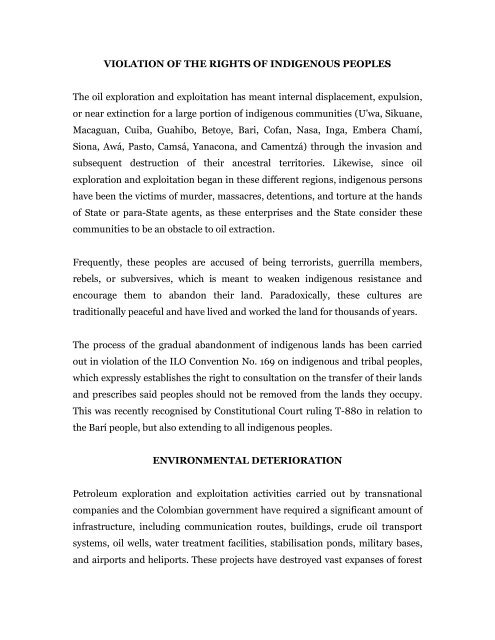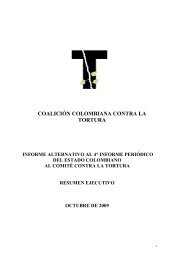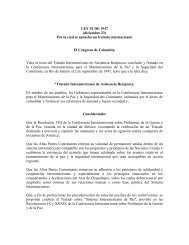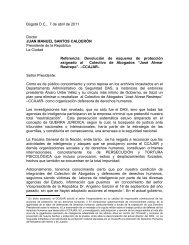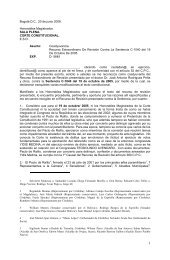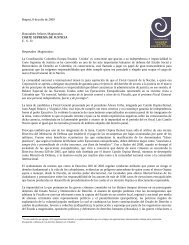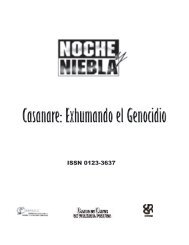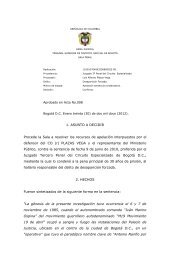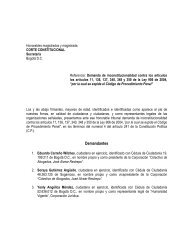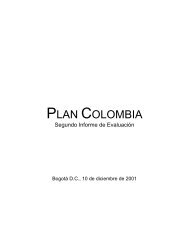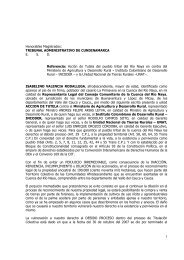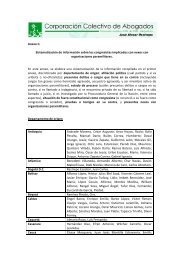PERMANENT PEOPLES' TRIBUNAL, SESSION ON COLOMBIA ...
PERMANENT PEOPLES' TRIBUNAL, SESSION ON COLOMBIA ...
PERMANENT PEOPLES' TRIBUNAL, SESSION ON COLOMBIA ...
You also want an ePaper? Increase the reach of your titles
YUMPU automatically turns print PDFs into web optimized ePapers that Google loves.
VIOLATI<strong>ON</strong> OF THE RIGHTS OF INDIGENOUS PEOPLES<br />
The oil exploration and exploitation has meant internal displacement, expulsion,<br />
or near extinction for a large portion of indigenous communities (U’wa, Sikuane,<br />
Macaguan, Cuiba, Guahibo, Betoye, Bari, Cofan, Nasa, Inga, Embera Chamí,<br />
Siona, Awá, Pasto, Camsá, Yanacona, and Camentzá) through the invasion and<br />
subsequent destruction of their ancestral territories. Likewise, since oil<br />
exploration and exploitation began in these different regions, indigenous persons<br />
have been the victims of murder, massacres, detentions, and torture at the hands<br />
of State or para-State agents, as these enterprises and the State consider these<br />
communities to be an obstacle to oil extraction.<br />
Frequently, these peoples are accused of being terrorists, guerrilla members,<br />
rebels, or subversives, which is meant to weaken indigenous resistance and<br />
encourage them to abandon their land. Paradoxically, these cultures are<br />
traditionally peaceful and have lived and worked the land for thousands of years.<br />
The process of the gradual abandonment of indigenous lands has been carried<br />
out in violation of the ILO Convention No. 169 on indigenous and tribal peoples,<br />
which expressly establishes the right to consultation on the transfer of their lands<br />
and prescribes said peoples should not be removed from the lands they occupy.<br />
This was recently recognised by Constitutional Court ruling T-880 in relation to<br />
the Barí people, but also extending to all indigenous peoples.<br />
ENVIR<strong>ON</strong>MENTAL DETERIORATI<strong>ON</strong><br />
Petroleum exploration and exploitation activities carried out by transnational<br />
companies and the Colombian government have required a significant amount of<br />
infrastructure, including communication routes, buildings, crude oil transport<br />
systems, oil wells, water treatment facilities, stabilisation ponds, military bases,<br />
and airports and heliports. These projects have destroyed vast expanses of forest


